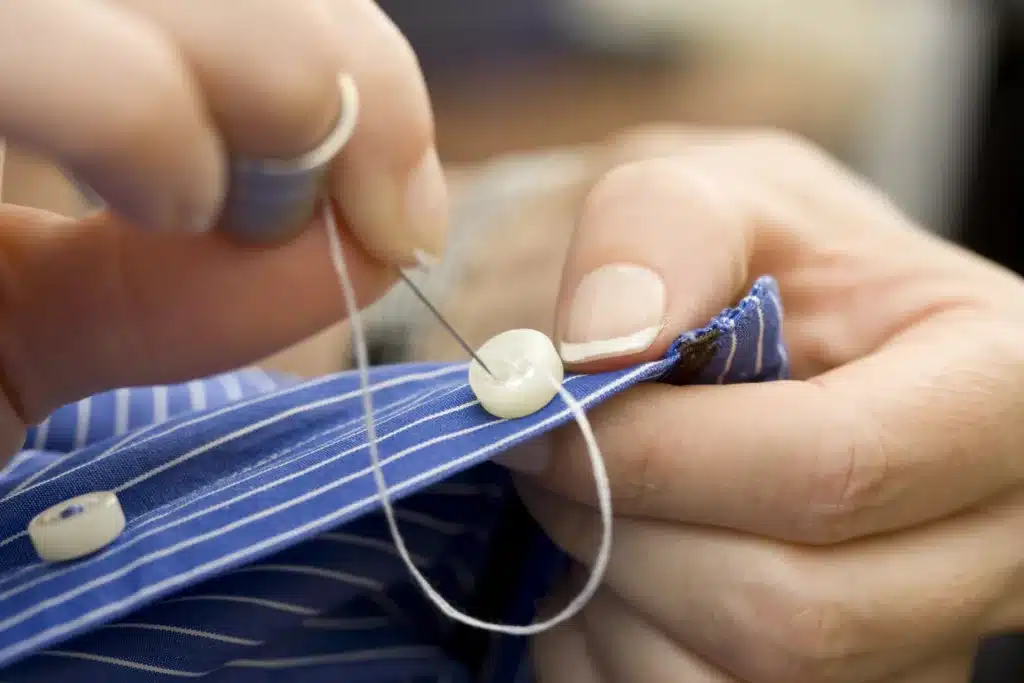“In New Zealand, approximately 45,000 tonnes of apparel is sent to landfill every year, made up of a whole range of clothing from different sources. That’s a lot of textile waste and it’s a problem because we know it releases a disproportionate amount of carbon emissions as it breaks down. Mindful Fashion has over 80 members who all believe in a more sustainable future for the industry. But, we’ve got a bigger problem in that we don’t, at a country level, have a system to deal with textile waste. This is something we are talking to the Government about addressing at a national level. ” – Jacinta FitzGerald, Programme Director, Mindful Fashion, speaking on Radio New Zealand
Each garment holds its own story; from design through to fabric creation, dyeing, cutting, sewing, finishing and selling. It can journey around the world in this time, consuming energy and water as it goes. The same items are worn less, if at all, contributing to vast quantities of textile-based landfill.
The New Zealand fashion industry faces enormous challenges to dramatically decarbonise, regenerate natural systems and reduce waste from its activities, while at the same time continuing to inspire and clothe consumers. However, there has been no clear vision for a low carbon, circular and regenerative clothing and fashion system in New Zealand and no pathway to guide the industry in this transition.
An area of particular importance for this sector is the circular economy; designing out waste, pollution, greenhouse gases, and keeping safe and clean materials in circulation. It means using new techniques to disrupt and improve supply chains and business models, and investing in people and communities that can make this possible.
In response to the current state of play, Mindful Fashion designed the New Zealand Fashion Industry Climate Action Programme, which was kickstarted by funding from Whakatupu Aotearoa Foundation. This led to further support from the Ministry for the Environment | Manatū Mō Te Taiao. It has been co-developed with carbon measurement and offset specialist Ekos and it is open to all of the fashion industry.
“As consumers we’re buying more clothes than ever and wearing them less than ever, and the industry is feeding these habits. So, the challenge is both to change buyer behaviour and disrupt the industry – because this can’t go on,” says Yii Petrus, Programme Director for Whakatupu Aotearoa Foundation. “I have seen Jacinta take the lead in this space. She has quickly become a national spokesperson for sustainable fashion in Aotearoa due to the pace at which she has gathered support from the industry. She is collaborating with leaders who are seeking solutions and it is an inspiring movement to be part of,” says Yii.
“We know that globally the fashion industry is a huge contributor to carbon emissions. Our action-oriented programme will build capability and use collective action to drive reductions over time. This is a programme the entire fashion and textiles industry can get behind, and frankly it must if we are to meet global targets.” – Jacinta FitzGerald, Programme Director, Mindful Fashion
With support from Whakatupu Aotearoa Foundation, Jacinta has worked with industry, national and international stakeholders to develop an NZ fashion industry programme and high-level roadmap, to drive climate action. She has campaigned across the sector to establish crucial partnerships and signatories and is seeking ways to incentivise participation from the wider industry.
The roadmap identifies a staged approach to climate-positive action that all players in the industry, from textile suppliers to machinists to retailers, can follow. The people, processes and channels are all touchpoints for sustainability and emissions reduction, and product stewardship is central to success. Through Mindful Fashion, members can gain knowledge and upskill in sustainability, and find ways to take action to lower their emissions throughout their supply chain with industry specific guidance and tools.
As the only industry body for the sector in Aotearoa, Mindful Fashion is uniquely positioned to drive the collaboration required to build a sustainable and thriving future for our fashion and textiles.
By the numbers
As at December 2022
9
workshops and events
80+
signatories
$80k
our investment
